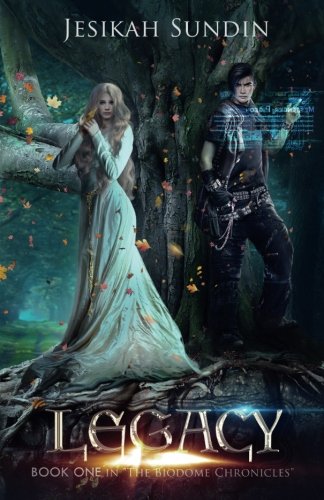
 1
1




I'll plant tree and shrub seeds if you send them! Go here for an address and more info: https://permies.com/t/64918/Seeking-Tree-Seeds#553058
AVA Patreon: https://www.patreon.com/AvaPermaculture
 1
1




 1
1




Stories & videos: www.storypaths.net








My project thread
Agriculture collects solar energy two-dimensionally; but silviculture collects it three dimensionally.




 2
2




Tyler Miller wrote:
I really enjoyed The Diamond Age by Neal Stephenson. I don't remember there being anything permaculture related in the book, but I thought it would be interesting if a book in the same universe had some stuff take place in a permaculture "phyle". I was thinking of writing a speculative fiction book that was something like The Diamond Age, but with a little less nanotech and more permaculture and something like Georgist economics. I don't think I will because it would probably end up being too derivative of The Diamond Age.

Creator of Shire Silver, a precious metals based currency. I work on a permaculture farm. Old nerd. Father.




Ron Helwig wrote: I figured that if they were to pay every generation the value of the land, and each generation is roughly twenty years, then each year they should pay 5% of the value of the land. If 1% went to local/town government, 1% went to county, 1% to state, 1% to nation, and the other 1% went to a guaranteed minimum redistribution; how would that work? Of course, once I did all the work of writing this up in a big document and showed a friend they said "Oh, that's Henry George's stuff".

Neat thoughts, Ron, Thanks,




Ron Helwig wrote:Another thought: what about an alternate history novel? (Harry Turtledove comes to mind.) Imagine if instead of relying on tariffs for revenue the new United States had instead enacted a Georgist land value tax. That alone might have prevented the Civil War, or at least drastically changed its timeline and other factors.
Ron Helwig wrote:On that alternate history tack, I'd love to see Paul write some about HUSP. Maybe co-write a book with a professional novelist.
I've also thought about HUSLE (Horticulture of the United States of Leif Erikson) - what if the Vikings stayed in the new world? I imagine that the Vikings would have interacted with the natives more, trading techniques instead of just assuming that European horticulture is superior and mostly ignoring native knowledge.
 3
3






Charlotte  - https://abundancedancegarden.wordpress.com/
- https://abundancedancegarden.wordpress.com/
Writing for PRI can be found here - http://permaculturenews.org/author/charlottehaworth/




 1
1




 3
3









A human being should be able to change a diaper, plan an invasion, butcher a hog, conn a ship, design a building, write a sonnet, balance accounts, build a wall, set a bone, comfort the dying, take orders, give orders, cooperate, act alone, solve equations, analyze a new problem, pitch manure, program a computer, cook a tasty meal, fight efficiently, die gallantly. Specialization is for insects.
-Robert A. Heinlein
 1
1




Cassie Langstraat wrote:I don't know if this is specifically permaculture fiction but the Margaret Atwood Maddadam trilogy could possibly fit into this category. It is sort of an eco-apocalyptic dystopia/utopia series. There is also a group of people called God's gardeners who are basically cultish environmentally friendly people who make an eco-friendly lifestyle into a religion. It is SUPER interesting. Atwood resists calling it science fiction though, and instead calls it "speculative fiction" because all of the stuff she writes about that seems to be absurd futuristic events, are somewhat already in the works. Has anyone else read this trilogy?

 1
1




How Permies works: https://permies.com/wiki/34193/permies-works-links-threads
My projects on Skye: The tree field, Growing and landracing, perennial polycultures, "Don't dream it - be it! "
 2
2




Learning slowly...
How permies.com works

|
Paper beats rock. Scissors beats tiny ad.
Learn Permaculture through a little hard work
https://wheaton-labs.com/bootcamp
|



